My father and the 87th Infantry in Europe 1944-1945
My dad, John H. "Johnny" Brantley was one of 13 children born to a cotton-picking, share-cropping couple in Milam county Texas. Born in 1923, he was the fourth son and fourth oldest. My grandparents lived in poverty that is seldom found today and I grew up with tales of deprivation during the Great Depression. The children began picking cotton around 5 or 6 years of age and none ever started their rural school until all the cotton was in, and of course, they left school in the spring to begin the "choppin". My dad reached the 8th grade. Although their stories were usually quite grim, my dad and his siblings would laugh about their hardships and poverty when they were grown. Destitution had created a bond and a closeness that prevailed to their end.
Before World War Two my dad and several brothers had been part of the Civilian Conservation Corps. Now the young cotton-pickers had a chance to travel the country somewhat, with trips to Colorado, New Mexico and Wyoming, working for the CCC. I think that experience, along with his adventures in Europe, instilled a "wanderlust" in dad that persisted until he died. It seems we were always headed off for a vacation somewhere! I've read historians' claims that the huge number of young Americans working in the CCC gave our Armed Forces an advantage when the war required so many troops. They were accustomed to living a disciplined life in barracks and uniforms and the transition into the armed services was not much of a change for them.
My dad was a member of the Headquarters and Headquarters Battery of the 87th, which was part of the Third Army, commanded by General George S. Patton.
John H. Brantley at about 21
In a club in Atlanta, Georgia shortly after basic training at Fort Benning in 1944.
They sailed from New York City on November 4, 1944 aboard the HMS Louis Pasteur. They eventually left England and arrived in Le Havre, France on December 2. They traveled through France, firing their first artillery round on December 6, 1944 at Metz followed by the first infantry attack at Saarbruken on Dec. 11.
They left the Saar basin on Dec. 23, headed for the Ardennes to reinforce American troops in the Battle of the Bulge. I heard several interesting stories from this period. My dad was impressed with the deep snow and spoke of it often. He didn't speak of the war that much but would sometimes relent and reminisce. He was part of a wire-laying team for field telephones and told of hazardous missions through darkness to find and repair broken wires. When I think back now and "do the math", I realize that at the time of my questioning, we weren't that many years removed from his experiences. Some of his stories were funny and some told of the horrors of war and things I don't think he really wanted to remember.
My dad is seen here, standing in the middle
Johnny on the right with his M1 carbine
They breached the Siegfried Line on February 26, 1945 and fought for the city of Koblentz from March 17-19, 1945.
The 87th crossed the Rhine River on March 26.
They then drove toward Czech territory, arriving in Falkenstein on May 6 to get ready for an advance along the northern Czech border. The next morning, a cease fire order was phoned to them and by May 13, they had become an occupying army.
German troops flocked to American units in order to avoid capture by Soviet forces. My dad said a long column surrendered to them one day. Their CO sent a jeep along their line and they deposited their weapons into duffel bags which the CO then offered to his troops as souvenirs. I have an officer's sword, a 1916 Ruby-type .32 auto pistol (which was originally issued to the French Army in World War One. Now, that's got to be the basis of a great tale-the same pistol carried by soldiers in at least three armies during two world wars!) and a Mauser bayonet that were collected that day.
My dad had three older brothers serving in the U.S. Army at that time. One stayed stateside, one was in the Pacific Theater and one was also in Europe. Through letters back home to my grandmother, they discovered that they were not too far apart at some point. I knew they had met there but didn't remember many details. Not many years ago, my uncle Jeff (J.G. Brantley) told me the story shortly before his death. It seems my dad "borrowed" a truck from the motor-pool. Whether he had permission to do so was never established.
 He drove about 50-60 miles to meet his brother on a Friday, and the two of them, along with a coupe of Jeff's mates, spent the weekend getting drunk. My dad somehow drove back to his unit unscathed.
He drove about 50-60 miles to meet his brother on a Friday, and the two of them, along with a coupe of Jeff's mates, spent the weekend getting drunk. My dad somehow drove back to his unit unscathed. 
My dad, on the right and Jeff beside him during their meeting in Europe
Here two GIs inspect a pile of cached equipment. Note the soldier on the right holding an STG-44, the first real assault rifle and one of the most advanced rifles of the war.
Here troops swarm aboard a surrendered German fighter at the Plauen airfield in the lower photo, while the upper shows a Tommy and two Yanks reading the news of V.E.Day
Surrendered German officers
The end of the line for a Messerschmidt 109
A captured, shot-up Panzer
The devastation of war
What's the old adage? Life in the army is 90% boredom and 10% terror? That's probably about right and even in wartime, the mundane must be taken care of too. Here's my dad on the left, doing laundry with a mate
At some point, maybe even after hostilities had ended, my dad served as a driver for their commanding General, William W. Ford. General Ford was the only general to wear the artillery liaison pilot's wings during the war. He later took my father up for a short flight in an observation plane.
The 87th sailed for home on July 4, 1945 aboard the luxury liner America which had been converted to the troop carrier West Point. The reached New York City on July 11. In this picture, my dad is the soldier at the lower right in the garrison cap, looking to his left.
The majority of these photos are from the "yearbook" of the 87th Infantry. Yes, I have read that book so many times since I was a boy. The Second World War had a great significance for my, as it did for many of my peers as well. Almost every friend I had growing up was the son of a World War Two veteran. We all heard stories from our fathers and playing army soldiers was almost a way of life for me. I can still remember watching WWII TV programs like "The Gallant Men" and "Combat" with my dad. I wonder now what must have been going through his mind then. He used to claim that he was never scared over there and figured that if anyone could make it home, he could. I'm glad that he did, or else I wouldn't be here to write this. My dad passed away on May 17, 1979 at the much too young age of 55. If you've made it this far in the story, thanks so much. We all have our own personal family histories and so many of us have the same kind of connection to that war. May their stories never be forgotten.
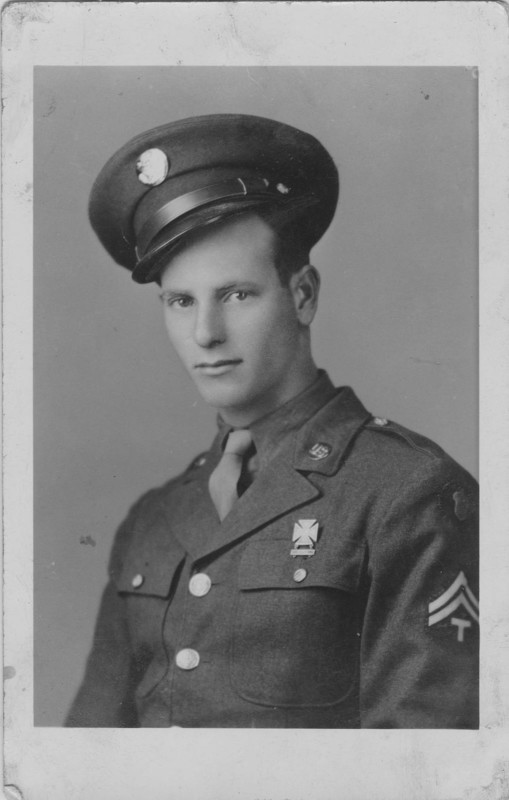
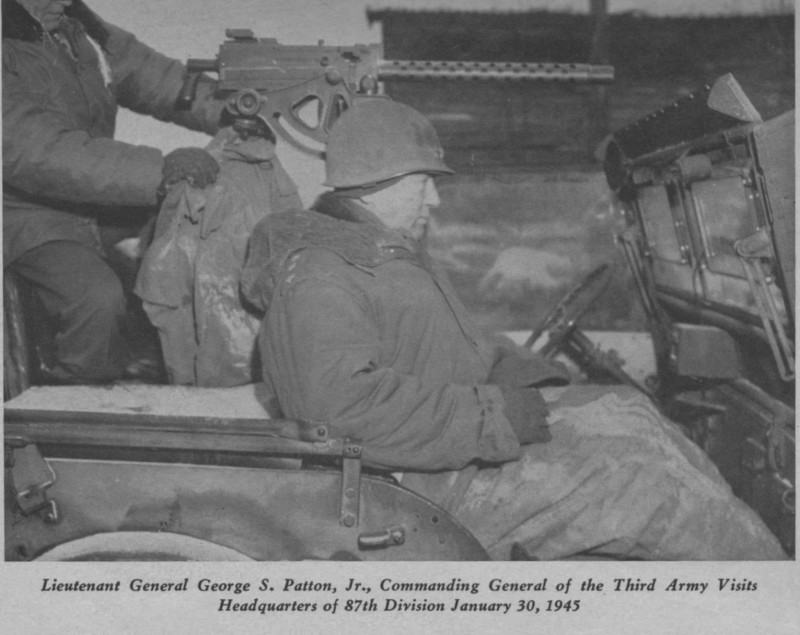
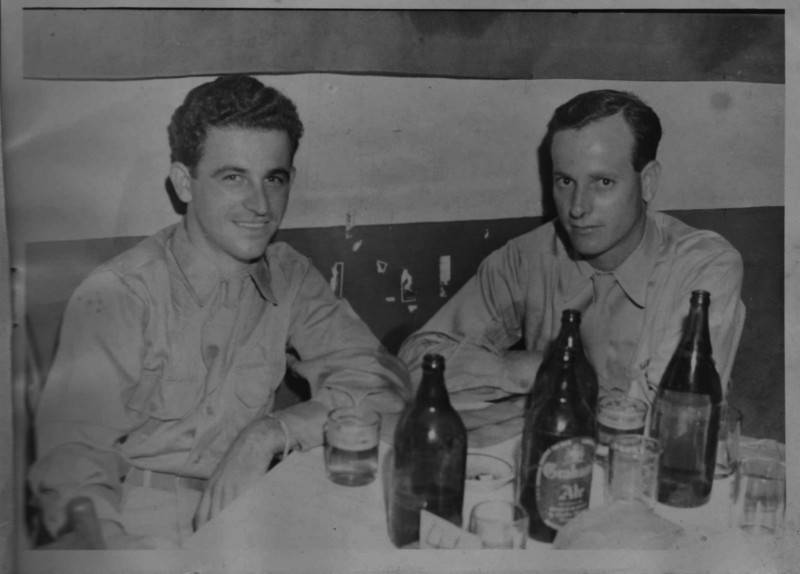
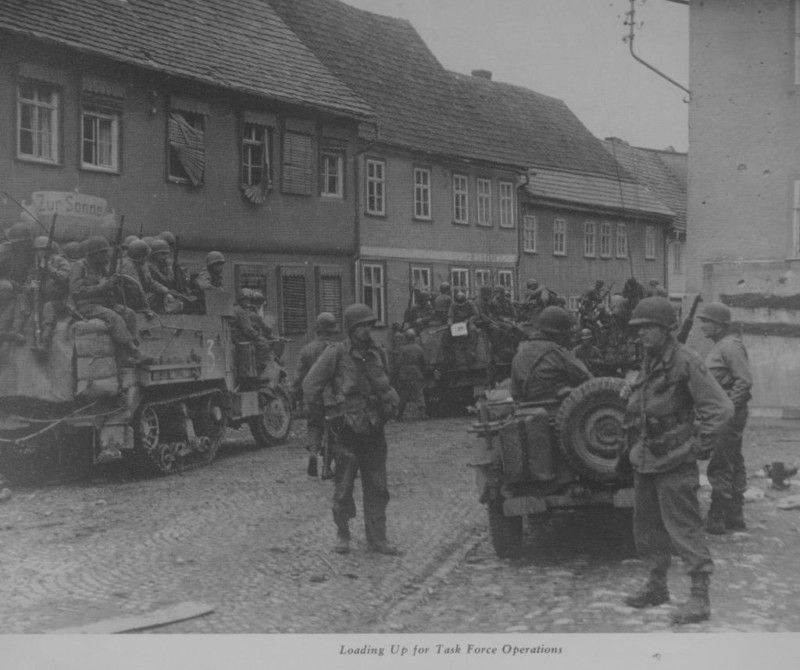
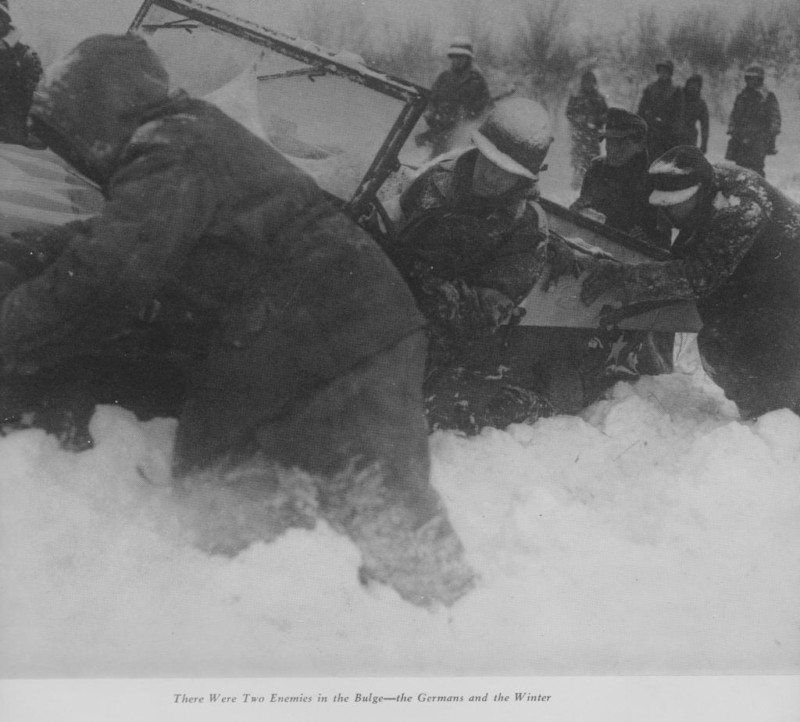
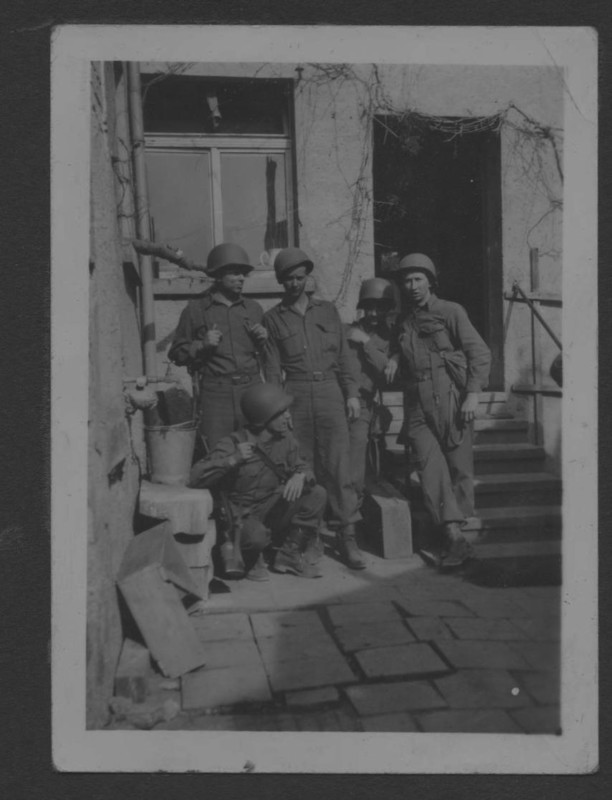
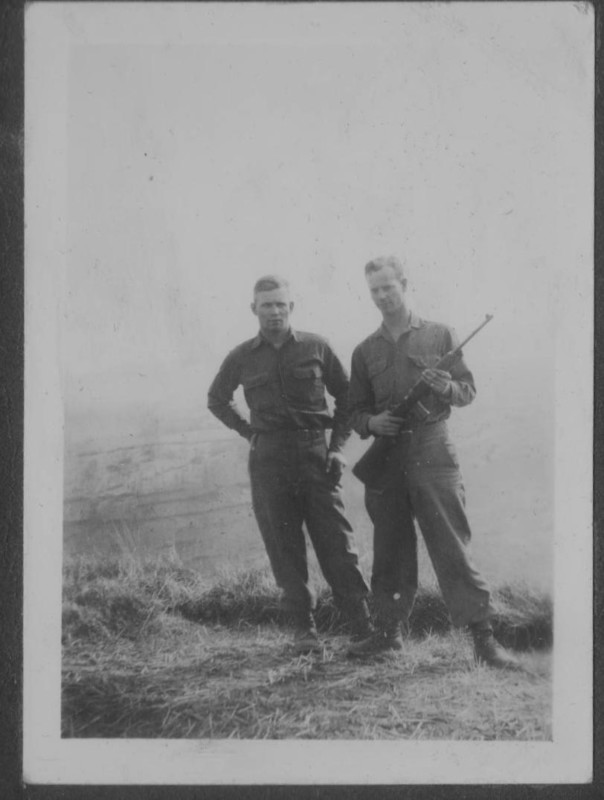
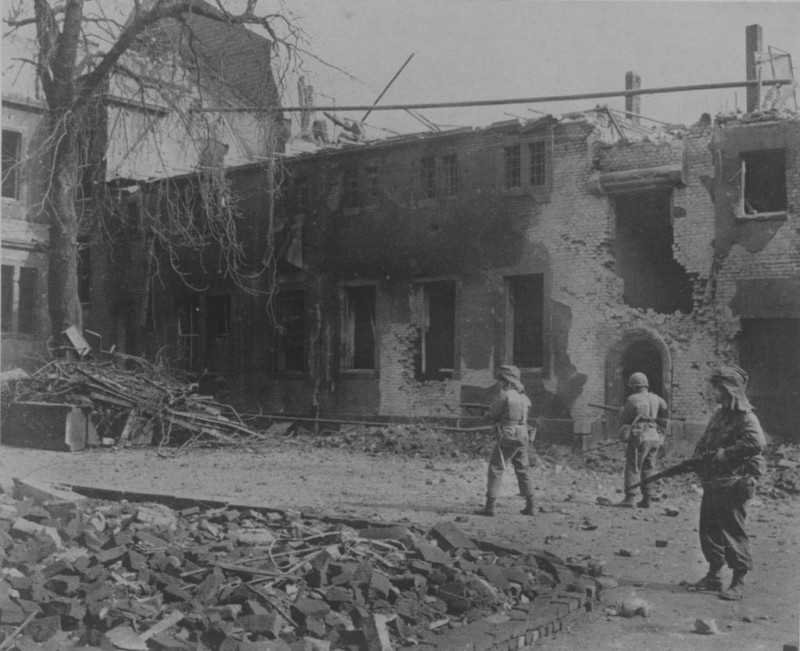
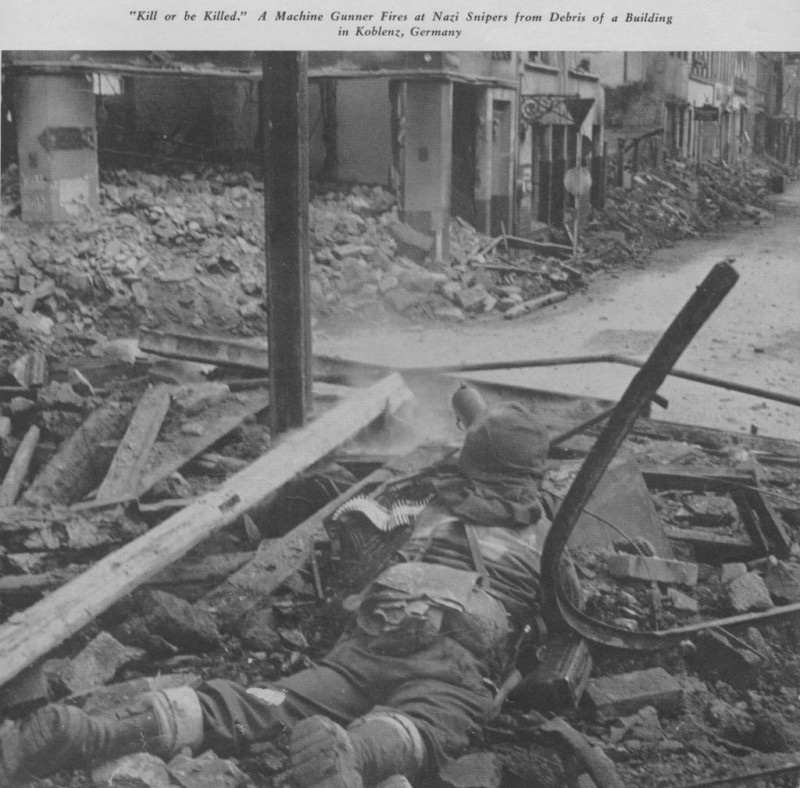
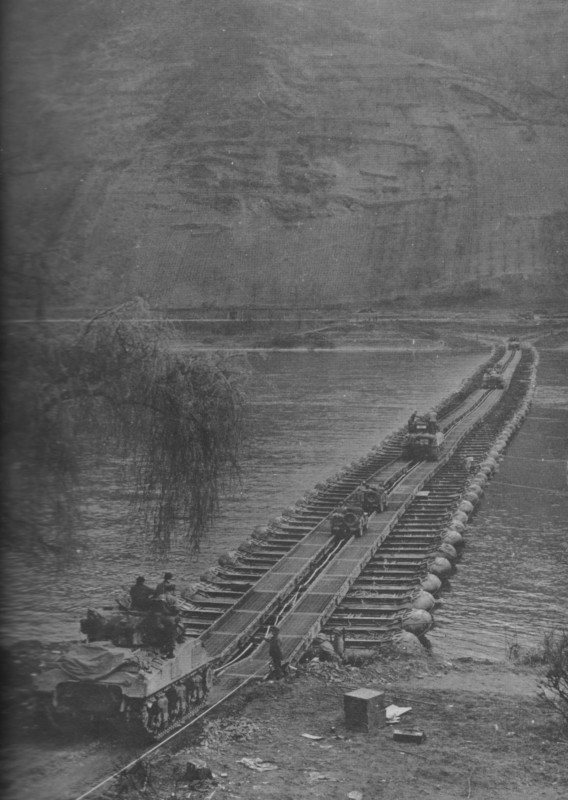
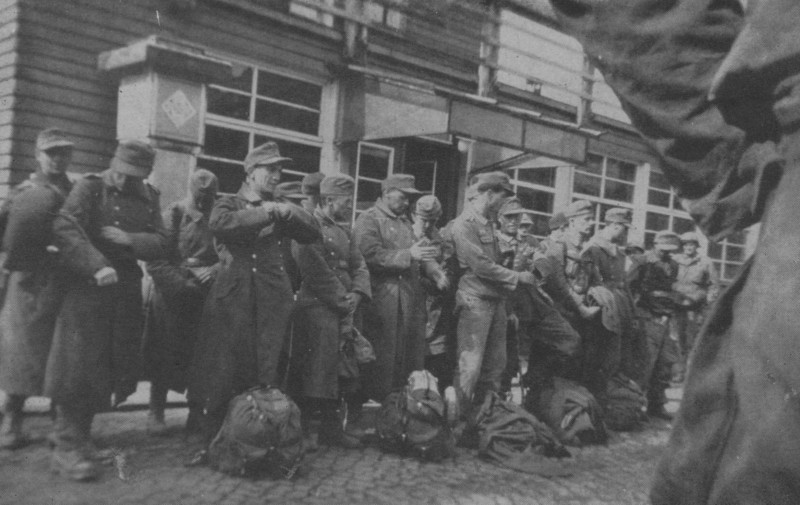
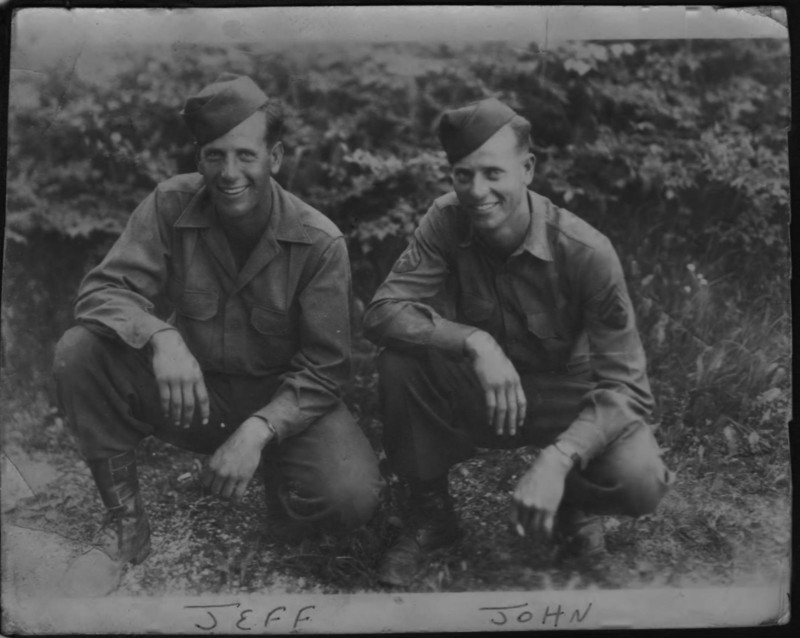
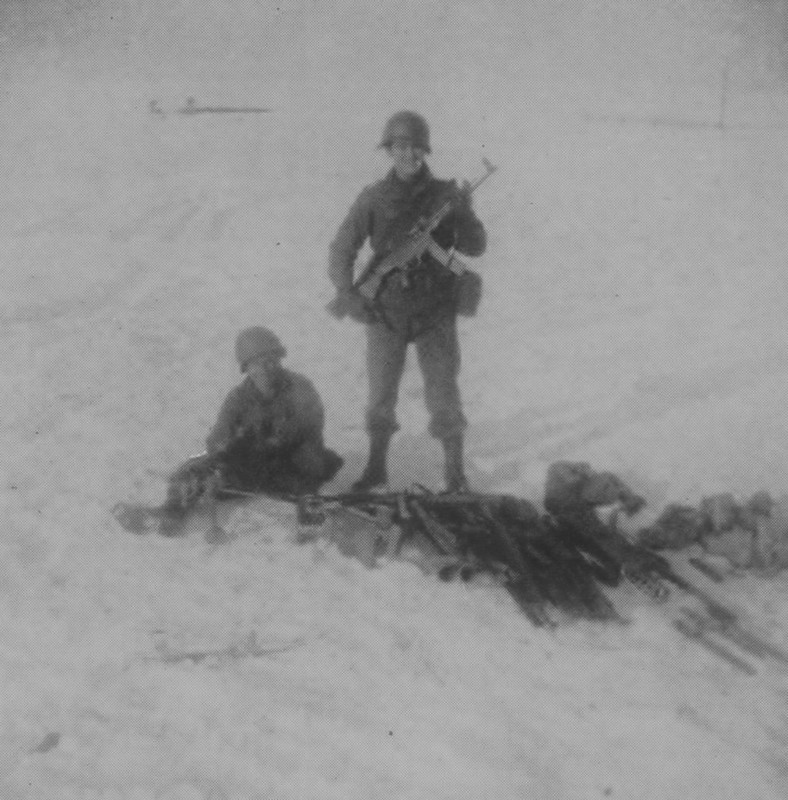
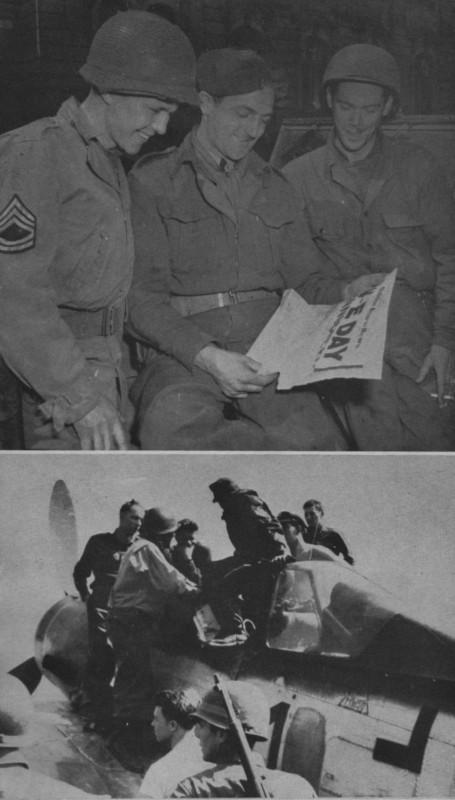
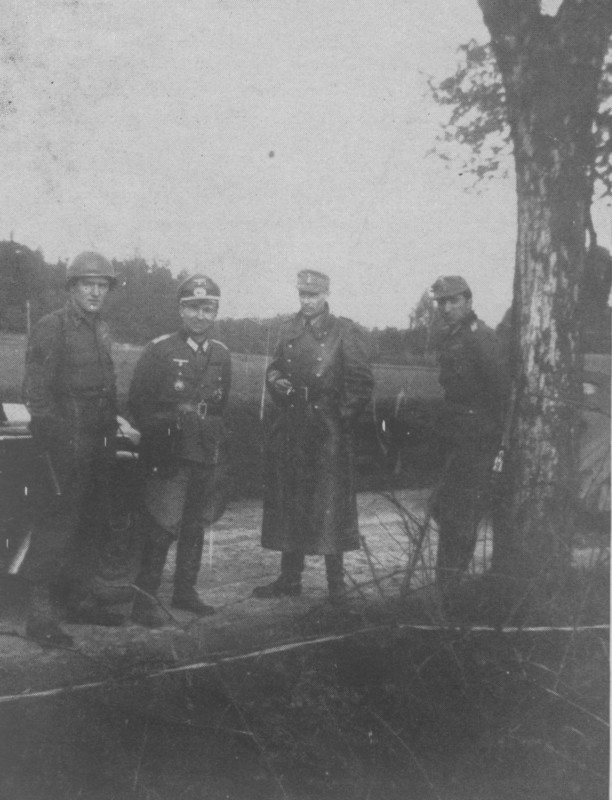
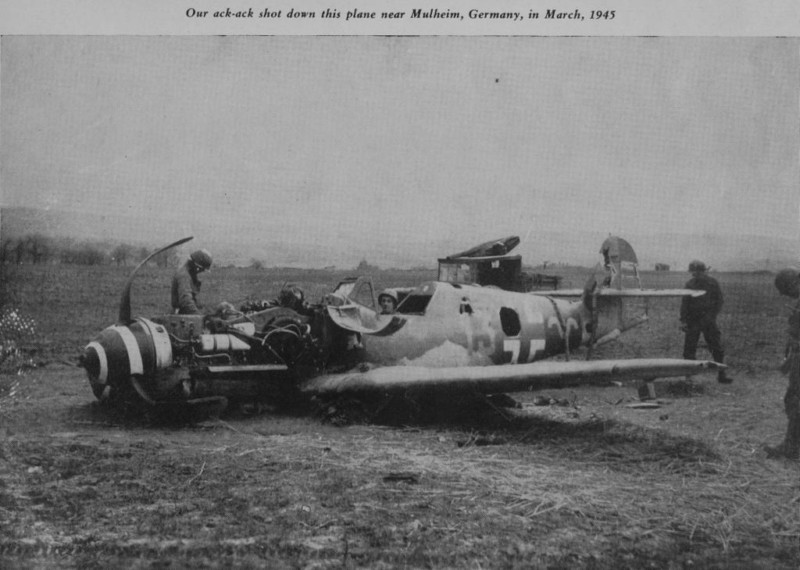
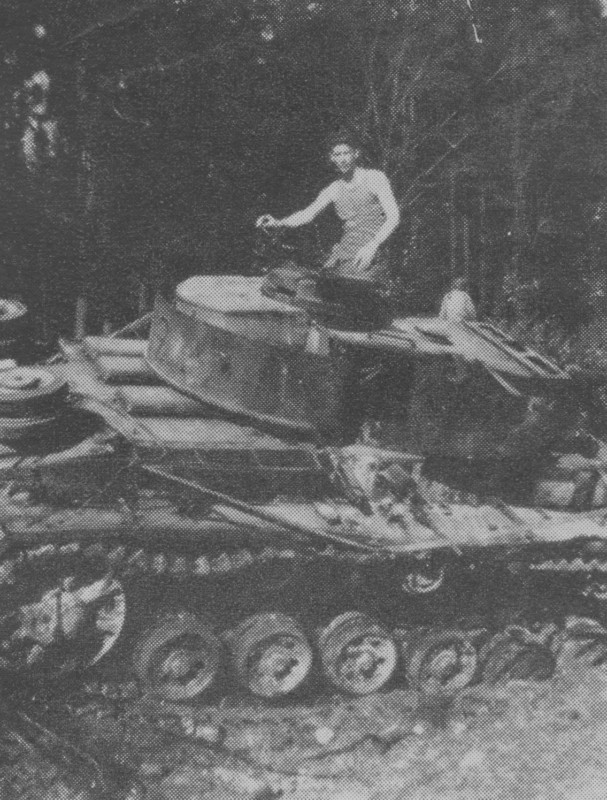
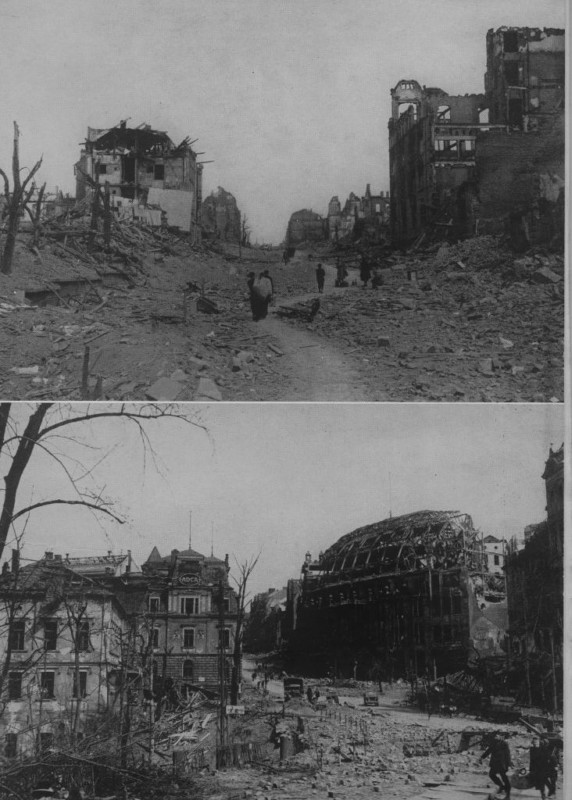
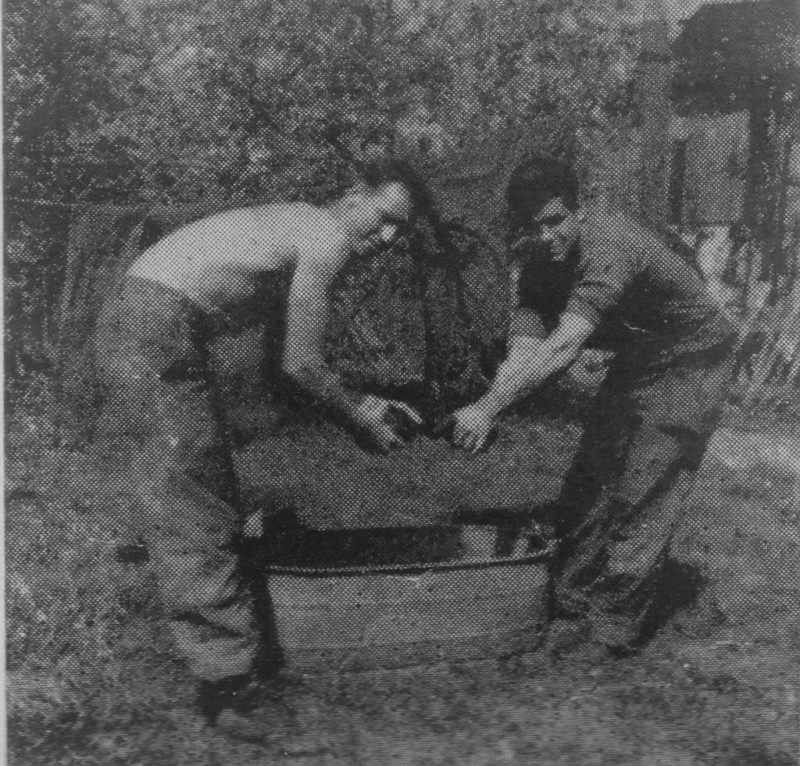
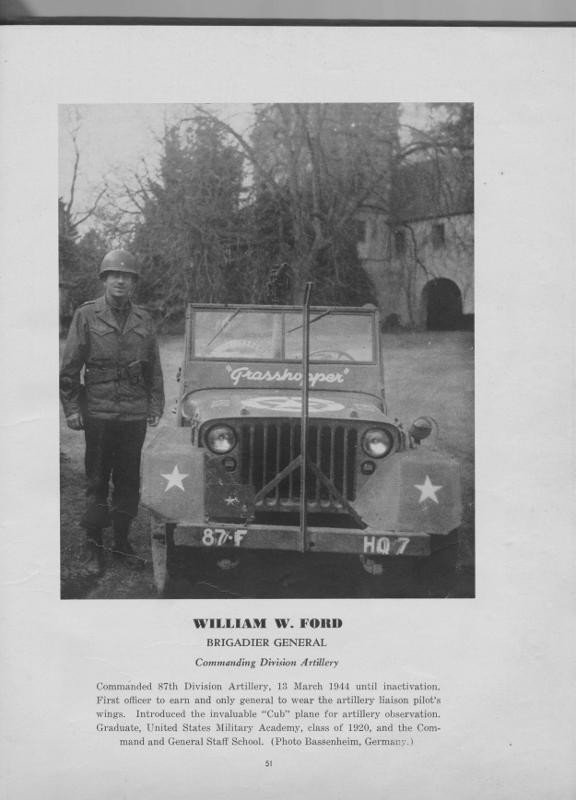
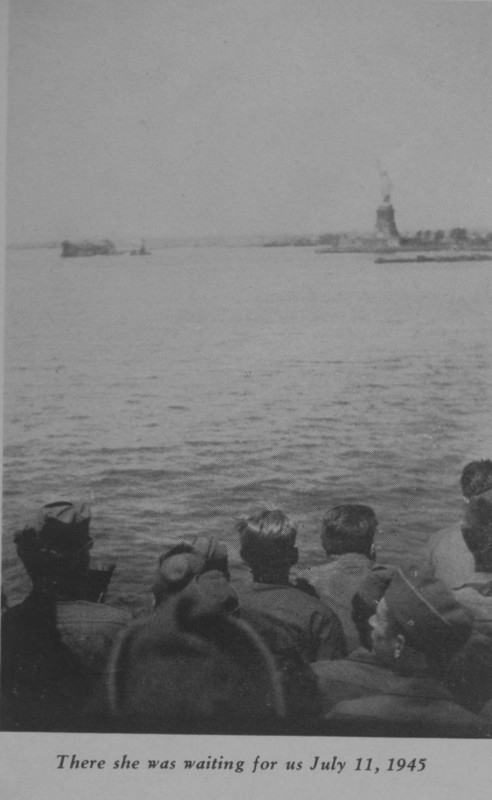
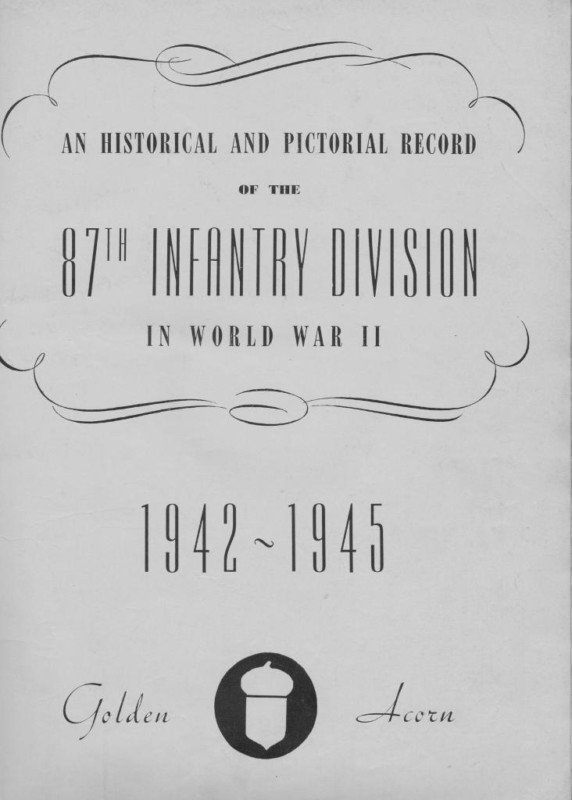
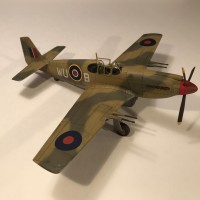
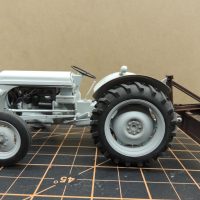
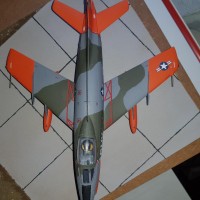
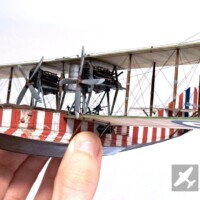
Gary, thanks for sharing this with us and for your families service. Some of us and our families appreciate what that is like, in various times and places.
I thank you Bernard for your comments, and for your own service to our country. That means a lot to me sir.
Yes thanks for sharing this with us Gary. Your Dad was a special man and I can tell that you are very proud of him (and you should be).
My Dad and I both were US Army vets. Dad was a Korean War combat veteran serving in Infantry and Armor since he had a dual MOS.
I wanted to be like Dad too...
During WW2 a lot of our family members served. My great aunt had 4 sons serving at the same time in the Army just like yours. They were all in Europe. Two were killed, and the other two were severely wounded, all in a matter of 108 days. One jumped into Normandy with the 101st.
It almost sounds like the movie Saving Private Ryan... True though.
We had another family member killed in a B-25 over Italy. He was a top turret gunner and his plane was hit by an 88 MM AA gun. It burned all the way in. Only one parachute was seen, and it was on fire, failing after a few seconds.
Finally the last family member killed was also in a B-25. He was a pilot and was killed on a training mission, along with the unit CO and six other pilots, while flying from Palawan. His plane hit the water while they were practicing low level "Split S' maneuvers, lining up for skip bombing missions. They only found a little wreckage debris and again, no survivors.
Freedom isn't free...
Thanks again for sharing these wonderful photos with us.
Thanks, and you're welcome Louis! You and your family's service and sacrifice was extraordinary. Thank you for that. Yes, it's so true that we owe our freedom to that sort of selfless service. To give, or take, a life in defense of one's nation is a very high calling, and one that used to be very common in our culture. We do still see that dedication though today in the many fine men and women who serve around this world in the name of freedom. It's just that current wars don't seem to have the same currency or urgency that was so evident in WWII. It was truly the one war we've fought since the Revolution that was for national survival. I tried to explain that to my young students. We had Veteran's Day ceremonies at school and I would always be embarrassed by the disrespectful behavior of some of our older kids.
I told my classes that the old people they saw at that flag raising weren't always that. They were young and strong and brave and they saved our country once upon a time. I told them that everything they had or held dear was due to the efforts of those men and women in the dark days of World war Two. If we had lost, our nation was gone.
My dad and his brothers were very fortunate. My dad came home with no wounds other than a wrist broken in a company football game. My uncles were similarly lucky. It sounds as though your family suffered more than their fair share. But, isn't that the way in the "lottery of life"?
I'm glad that you posted your comments Louis and glad too that you enjoyed those photos. Heaven knows I've looked at them a thousand times.
What a nice tribute and backstory, my friend. Thanks for sharing your pics and the history behind them.
Thank you Craig! I really appreciate that. I was 26 when my dad died. Hell, when my own son was 26 I still thought of him as a "kid". At 26, one doesn't ask the sort of questions that come later. There is so much that I would've talked about with him had I known how little time we had together.
At 26, one doesn't ask the sort of questions that come later. There is so much that I would've talked about with him had I known how little time we had together.
When "Band of Brothers" first aired on HBO, my son Carson and I watched the entire series. I thought he seemed really interested in that history, and then I remembered that I had told him that his grandfather had been exactly his age then, when he went "over there". You know, I believe knowing that really made the entire story resonate for him in ways completely different from my own. Thanks Craig!
Great story Gary as well as family history. Lots of parallels here, as my dad also served with the CCC prior to the war. Helped build some of the national parks out west. Often he would mention that he felt Jackson Hole, Wyoming was the most beautiful place on earth. Likewise, every kid in my small town in Ohio had a dad that served during the war. Truly a great generation and unfortunately most are now gone.
I appreciate your comments so much Tom, thanks so much! Yes, there are a lot of parallels here aren't there? Why, it's not beyond possibility that our dads might have even worked together in the CCs (as dad always referred to it). I know he was at Jackson Hole at one point building parks, roads, cabins, etc. I'm guessing you played a lot of army games too; bet you had a great machinegun sound...:). Talk about a band of brothers! We sons of that generation were inculcated with that history and also with a sense that our dads were our heroes but still "ordinary" guys who went to war and did their job. It was later when it came to me what a colossal job that was and just how much that meant. The time is near when none of them will walk this earth, and we will be so much less without them. Thanks Tom.
It's quite a possibility that our dad's worked together at Jackson Hole. Dad graduated June 1940, and joined the 3C's right after. He returned to Ohio after Pearl Harbor to enlist but his father told him to wait because the government would be calling soon enough, and they did. He and a high school friend thought the Airborne sounded like a lot of fun and the pay was $25 extra per month so they joined. The rest is history so to speak, as he experienced it all, Normandy, Holland, Bastogne, then Southern Germany. Thought Patton was a great man especially after he broke though to relieve the 101st at Bastogne. On occasion he would recount his experiences when talking with his HS friend as well as another neighbor who was with the 82nd. Only once did he show anger towards both me and my brother when at about 9 years old we asked him how many German's did he kill in the war. Still remember the stern look on his face and his answer. "That's something we don't like to talk about, and don't ever ask me that again." Taught me a lot about that old man and of course we never broached that subject again. Damn fine man and I've tried be as good as he was to me,his seven kids,his grand-kids, great grand-kids as well as to the community.he live in and gave back to.
I asked my dad the same question Tom. It was just a typical kid's question I guess. I got the same kind of response, something like your dad said, "I don't like to talk about that." Enough said and I never asked it again. Maybe he didn't kill anyone and felt I would be disappointed, I don't know. Or maybe he and M-1 carbine did. Again, that's a fact lost to history now. I don't think my dad was some sort of commando or bad-a*s, just an ordinary guy, a kid himself at 21 or 22 who became a man in a few months. If he was involved in a lot of terrible fighting, I'll never know now. All his siblings are gone now and Uncle Jeff might've been the only one who could've answered my questions about dad's time there.
Two of the grim tales he did tell though were both from the Bulge. He told of coming upon a truck, blown off a bridge with the dead scattered about and of tracking down a broken or cut wire one cold night. He and his wire-team came through some woods into an open field. A heavy snowfall covered the ground and all across that field, frozen arms and legs stuck out of the deep snow. I can still remember the picture in my mind that the story created.
Really nice story, thanks for sharing. I wish ask more about my fathers experiences. I tried getting his service records but apparently his were in that fire in the seventies.
Thanks Robert! You're welcome my friend, and I guess we all wonder why we didn't delve more into their experiences when we had the "primary sources" right here with us. I think we have a sense that there's always more time to do those things. Or, at least I did unfortunately. Sometimes the time runs out too quickly doesn't it?
Just stumbled across this. Thank you for posting this.
@gwfabian, You're so welcome Greg! Thank you for the comment, I'm glad you enjoyed his story. Every GI who served had one, and each one deserves to be told and remembered.
Thank you for the comment, I'm glad you enjoyed his story. Every GI who served had one, and each one deserves to be told and remembered. 

Have a great day Greg!